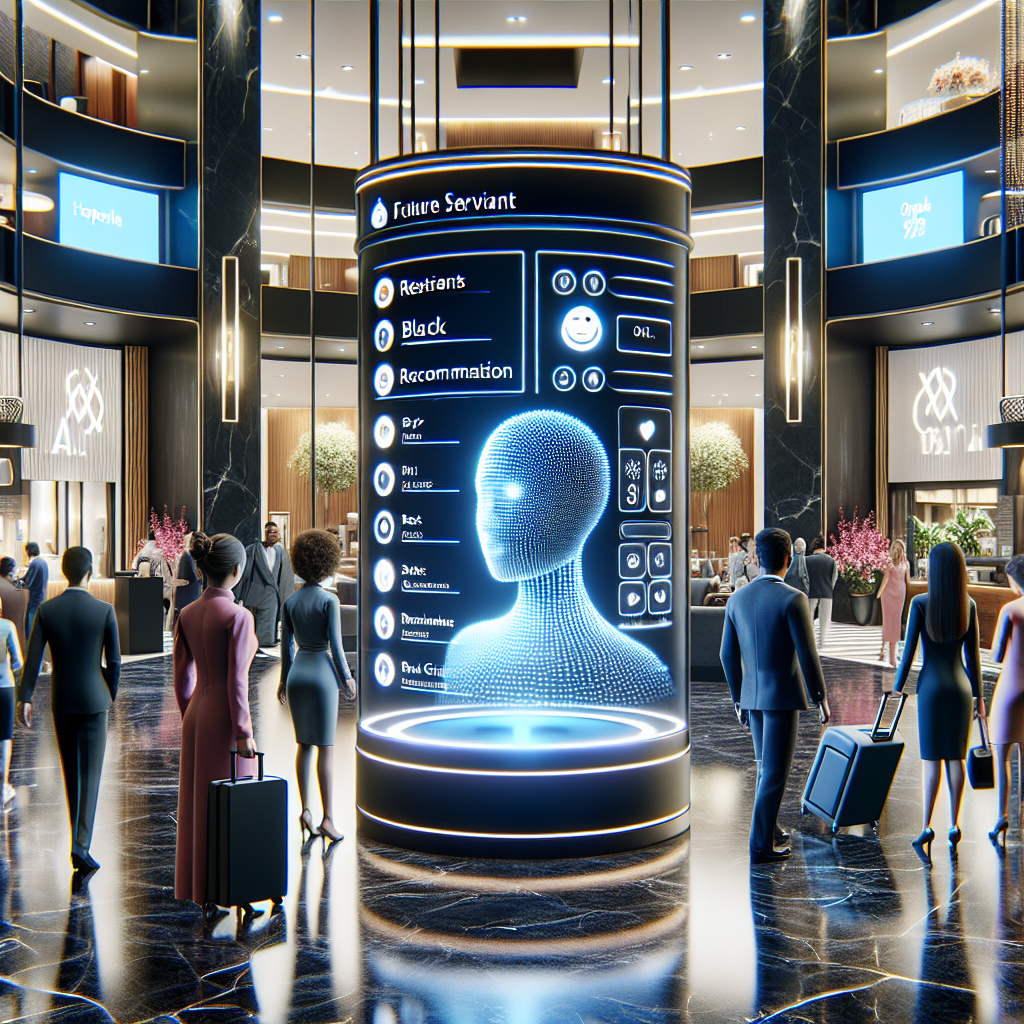AI-Powered Virtual Assistants in the Hotel Industry
In recent years, the hotel industry has seen a significant rise in the use of AI-powered virtual assistants to enhance guest experiences and streamline operations. These virtual assistants are revolutionizing the way hotels interact with their guests, offering personalized service, instant responses, and round-the-clock support. In this article, we will explore the benefits of AI-powered virtual assistants in the hotel industry and how they are transforming the guest experience.
Benefits of AI-Powered Virtual Assistants in the Hotel Industry
1. Personalized Service: AI-powered virtual assistants can provide personalized recommendations based on guest preferences and past interactions. By analyzing guest data and behavior, virtual assistants can suggest personalized dining options, activities, and amenities, creating a more tailored and enjoyable experience for guests.
2. Instant Responses: Virtual assistants can provide instant responses to guest queries, reducing wait times and improving customer satisfaction. Whether guests need information about hotel facilities, room service options, or local attractions, virtual assistants can provide quick and accurate answers, enhancing the overall guest experience.
3. 24/7 Support: Virtual assistants are available round-the-clock to assist guests with any queries or requests they may have. This ensures that guests receive timely assistance at any time of day, improving customer service and satisfaction.
4. Streamlined Operations: Virtual assistants can help streamline hotel operations by handling routine tasks such as booking reservations, checking guests in and out, and managing room service orders. This frees up hotel staff to focus on more complex and high-touch guest interactions, improving efficiency and productivity.
5. Multilingual Support: Virtual assistants can communicate with guests in multiple languages, catering to a diverse range of guests from around the world. This helps hotels provide a more inclusive and welcoming experience for guests who may not speak the local language.
6. Data Analysis: Virtual assistants can collect and analyze guest data to gain insights into guest preferences, behavior, and trends. This data can be used to improve marketing strategies, personalize guest experiences, and make data-driven decisions to enhance overall guest satisfaction.
7. Cost-Effective: Virtual assistants can help hotels reduce costs by automating routine tasks and streamlining operations. By leveraging AI technology, hotels can improve efficiency, productivity, and guest satisfaction while reducing labor costs.
FAQs
1. How do AI-powered virtual assistants work in the hotel industry?
AI-powered virtual assistants use natural language processing (NLP) and machine learning algorithms to understand and respond to guest queries and requests. They can be integrated into hotel websites, mobile apps, and messaging platforms to provide instant support to guests throughout their stay.
2. What are some common use cases for AI-powered virtual assistants in hotels?
Some common use cases for AI-powered virtual assistants in hotels include personalized recommendations, instant responses to guest queries, 24/7 support, streamlined operations, multilingual support, data analysis, and cost-effective automation of routine tasks.
3. How do AI-powered virtual assistants enhance the guest experience?
AI-powered virtual assistants enhance the guest experience by providing personalized service, instant responses, 24/7 support, streamlined operations, multilingual support, data analysis, and cost-effective automation of routine tasks. By leveraging AI technology, hotels can offer a more personalized, efficient, and seamless experience for guests.
4. What are the benefits of using AI-powered virtual assistants in the hotel industry?
The benefits of using AI-powered virtual assistants in the hotel industry include personalized service, instant responses, 24/7 support, streamlined operations, multilingual support, data analysis, and cost-effective automation of routine tasks. These virtual assistants help hotels improve guest satisfaction, efficiency, and productivity while reducing costs and enhancing the overall guest experience.
5. How can hotels integrate AI-powered virtual assistants into their operations?
Hotels can integrate AI-powered virtual assistants into their operations by partnering with AI technology providers, developing custom solutions, and deploying virtual assistants on their websites, mobile apps, and messaging platforms. By leveraging AI technology, hotels can enhance guest interactions, streamline operations, and improve overall guest satisfaction.
In conclusion, AI-powered virtual assistants are transforming the hotel industry by providing personalized service, instant responses, 24/7 support, streamlined operations, multilingual support, data analysis, and cost-effective automation of routine tasks. By leveraging AI technology, hotels can enhance the guest experience, improve efficiency, and productivity, and reduce costs while providing a more personalized and seamless experience for guests. As AI technology continues to advance, we can expect to see even more innovative applications of virtual assistants in the hotel industry, further enhancing the guest experience and driving business success.

